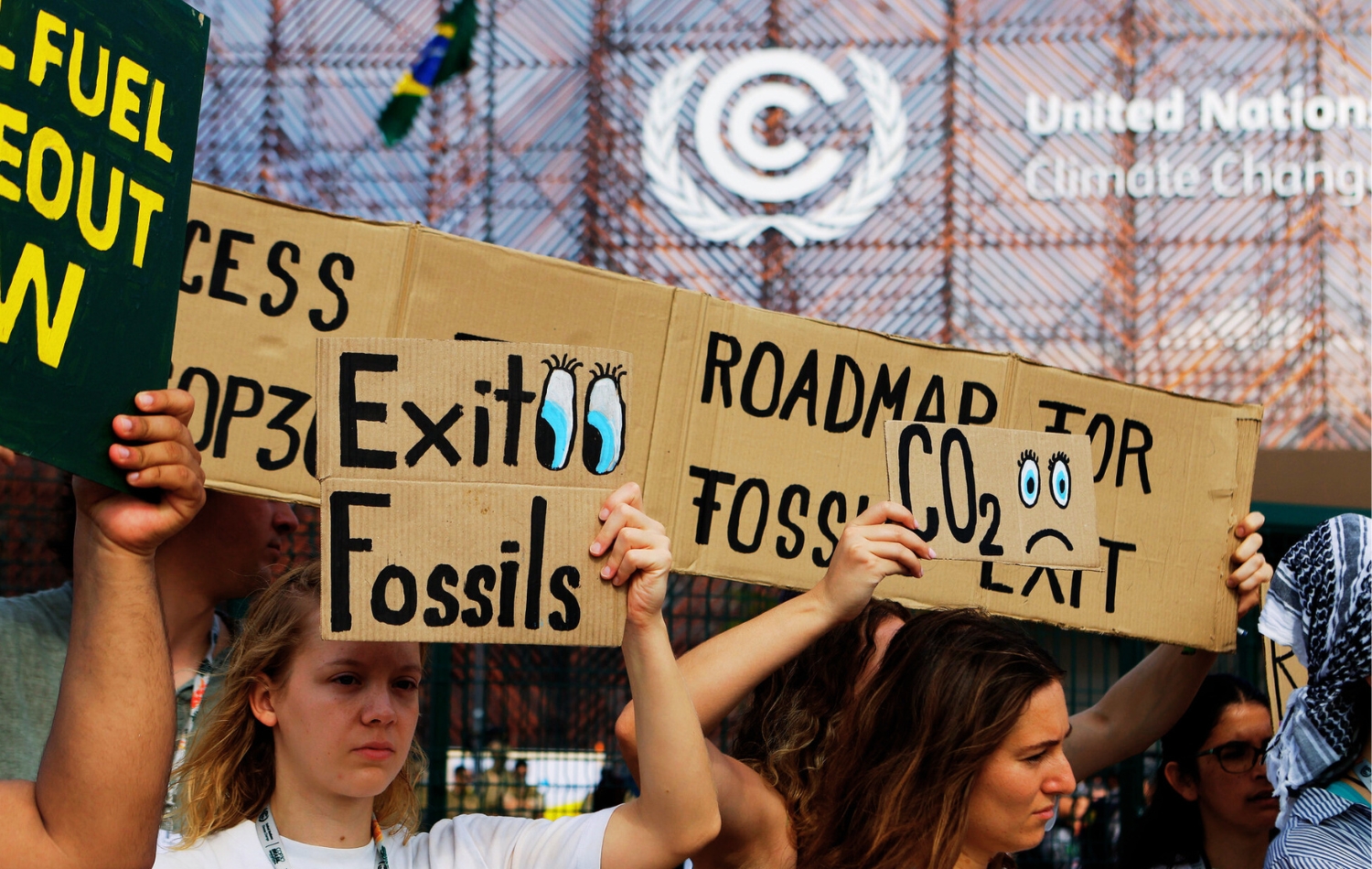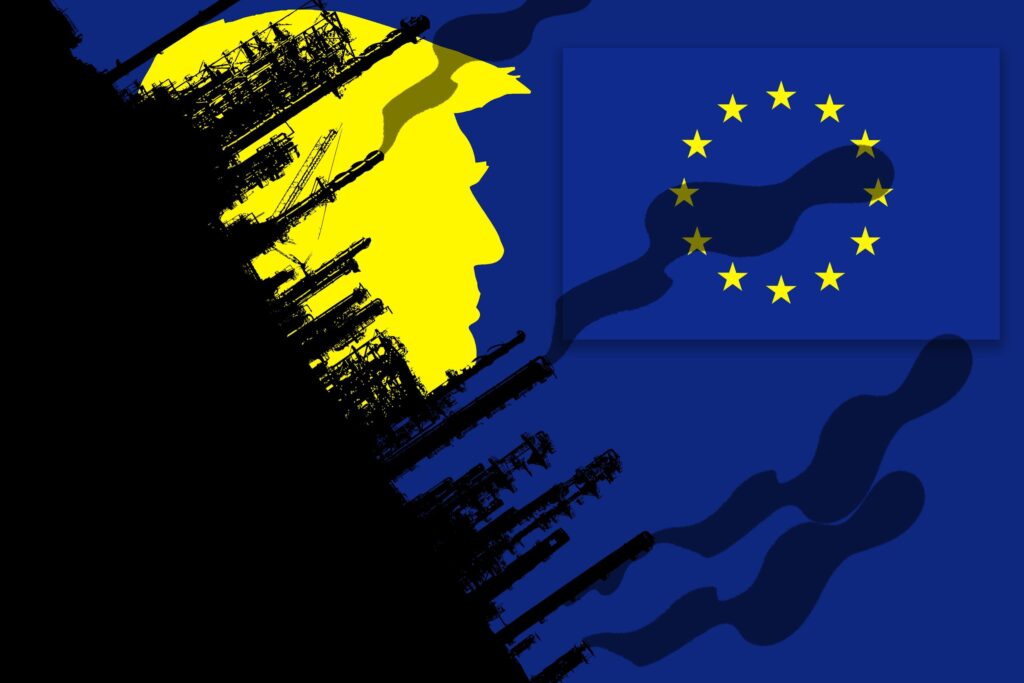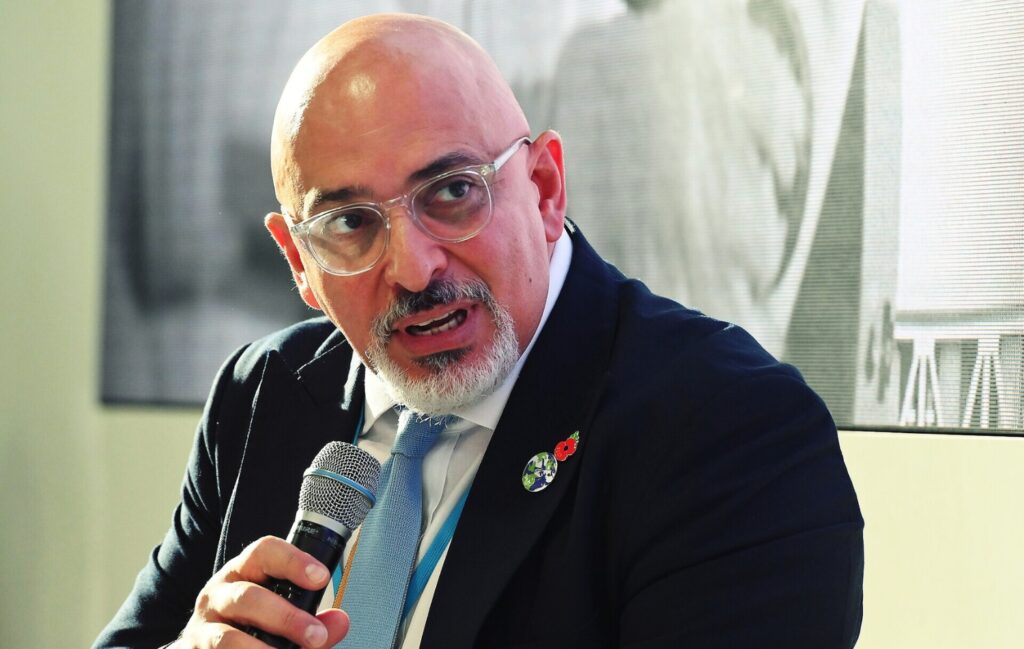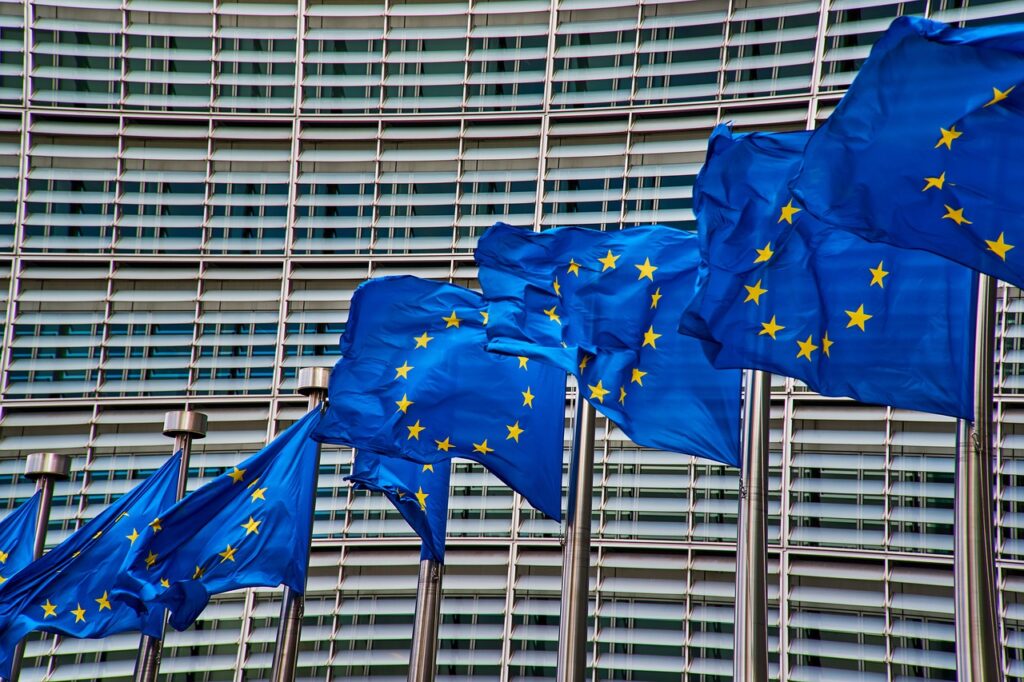Multinational consulting firm KPMG has been accused of using underhand methods to gain access to this year’s COP30 climate summit.
Critics allege that the firm has been using seemingly unaffiliated advocacy groups to gain entry to the flagship conference in Belém, Brazil, with senior staff failing to disclose their affiliation to KPMG.
KPMG, which has a turnover of almost $40 billion (£30.5 billion), has sent 30 lobbyists to the summit in the Brazilian Amazon. One of the firm’s core agendas during the fortnight has been to downplay the climate threat posed by the ever-growing energy demands of artificial intelligence (AI) – instead claiming that AI will be able to help solve the climate crisis.
A report from campaign group Kick Big Polluters Out last week revealed that this year’s COP is packed with a higher proportion of fossil fuel lobbyists than ever before – over 1,600, or nearly one in every 25 conference attendees.
Pascoe Sabido, a campaigner at anti-corruption watchdog Corporate Europe Observatory, told DeSmog: “If KPMG is going to be at COP30, it should be there under its own name, not hiding behind youth groups or government delegations.”
Sabido also expressed concern that KPMG is only one of many companies engaging in this practice. “Unfortunately this is an all-too-common phenomenon whereby companies sneak their way into the talks while those most impacted, such as Brazilian Indigenous communities, are shut outside”.
Subscribe to our newsletter
Stay up to date with DeSmog news and alerts
KPMG or Not?
In the run-up to the summit, KPMG published a COP30 programme advertising 14 events set to be hosted by the firm.
“Our core focus is to help our clients navigate the many challenges on the transition to net zero with a focus on innovation, policy and accelerating the mobilization of capital to where it is most needed,” the programme stated.
KPMG also published its official “global” and “One Americas” delegation lists, which made it appear as if the company had arrived at COP30 under its own flag.
However, this is not the case.
KPMG representatives have instead attended under the auspices of a variety of unaffiliated advocacy groups and national delegations, including those from the Global South.
The firm’s executives have gained entry via “overflow” badges from six national delegations – Ireland, Malaysia, Singapore, New Zealand, Australia, and Turkey – which grant access to all areas of the conference except the negotiating rooms.
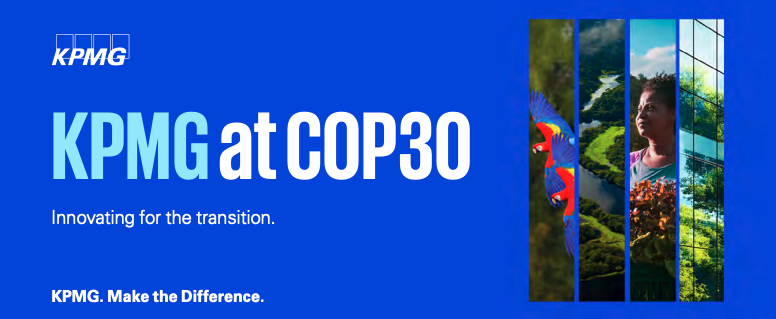
A wide variety of advocacy and youth groups from around the world have also listed KPMG employees among their delegations – despite not having any obvious connection to the firm.
For example, KPMG’s ESG and Clean Energy director Ruba Amarin, and UK head of ESG Richard Andrews were nominated to attend the summit by the Global Initiative for Food Security and Ecosystem Preservation, a Nigerian environmental education group.
The list of COP30 delegates released by the United Nations states that Amarin and Andrews are attending as representatives of the African Centre for Climate Actions and Rural Development Initiative (ACCARD) – another Nigerian advocacy group.
KPMG Australia partner Julia Bilyanski also gained access to the summit via ACCARD, although her “home organisation” – unlike Amarin or Andrews – is listed as KPMG.
Five KPMG staff – all listed in the firm’s COP30 programme – appear to have been granted badges without disclosing that they work for the company.
ACCARD has a record of facilitating corporate access to COP summits. DeSmog revealed that Chris O’Shea, who runs British Gas’ parent company Centrica, gained access to COP29 under the auspices of ACCARD, without declaring his real employer.
It’s unclear what work is conducted by ACCARD, and whether it has any other connections to KPMG or Centrica, given the “news” section of its website hasn’t been updated since COP28 in 2023.
Eleven KPMG representatives entered this year’s COP via the Indian charity India Youth For Society. None appear to be based in India. According to their LinkedIn accounts, they are based in London, Leicester, and Berkhamsted in the UK, as well as France, Australia, Canada, and Japan.
Poliana Menezes, who is an ESG senior manager at KPMG Brazil and is listed as part of its One Americas delegation, appears to have entered COP30 via Youth Initiative for Land in Africa – a charity that operates on a totally different continent.
KPMG staff have also accessed the summit via several business associations of which KPMG is a member, including Spain’s Confederación Española de Organizaciones Empresariales (Spanish Confederation of Business Organizations), the International Chamber of Commerce, the Federation of Indian Chambers of Commerce and Industry, and the International Emissions Trading Association (IETA).
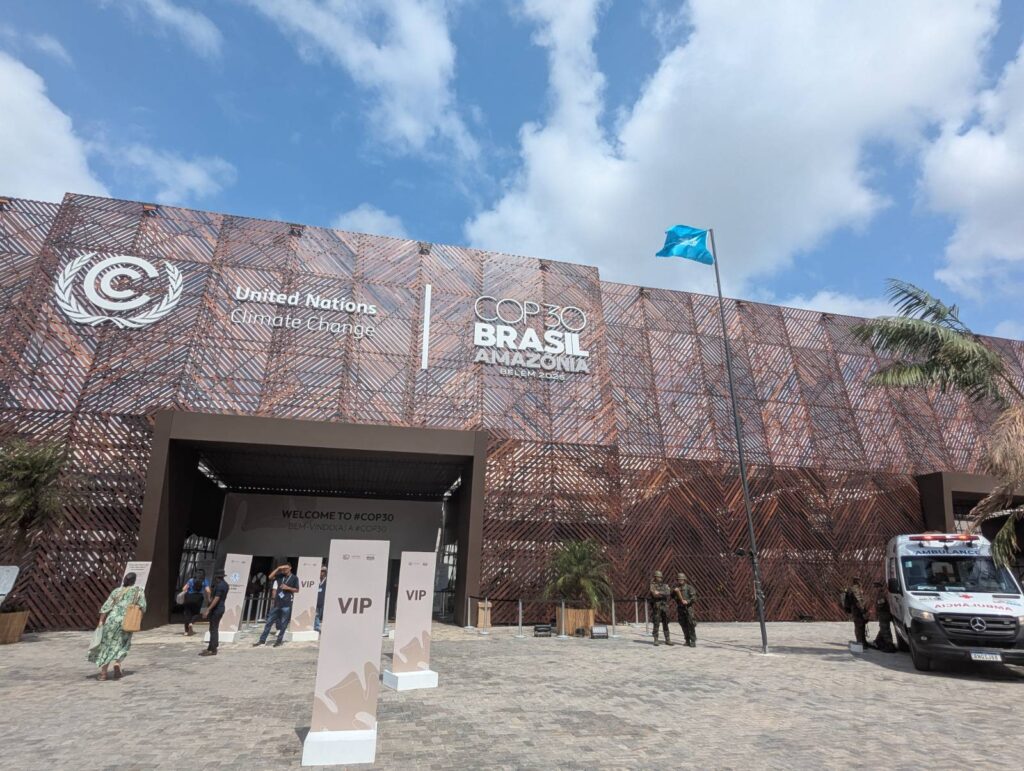
“Lobbyists should not be allowed to enter climate conferences at their convenience. COP30 is a convention to address the most pressing public emergency of our time, and must serve the public’s interest first, not the priorities of polluting businesses,” said Raphaël Kergueno of the anti-corruption campaign group Transparency International EU.
Rachel Rose Jackson, a coordinator of Kick Big Polluters Out, places the blame on the United Nations Framework Convention on Climate Change (UNFCCC), which organises the COP event.
“At present, the UNFCCC has essentially zero checks and balances in place to make sure that all attending the talks have people and the planet as their sole priority. Until protections are put in place to guard against polluting interests, COP30 and every COP thereafter will fail.”
A KPMG International spokesperson told DeSmog that it had maintained “an open and fully transparent presence at the annual COP summit for many years,” although did not explain its specific ties to the Global South advocacy groups, nor why several of its staff members failed to declare their relationship to KPMG when applying to attend COP30.
It added: “Businesses have a critical role to play at COP and the participation of KPMG is valued and welcomed by governments and multilateral institutions. As a global network of member firms, we take an active, collaborative approach to working with a variety of organisations leading debate, dialogue and action at COP to ensure the highest impact possible in our shared mission to tackle climate change and wider sustainability issues.
“We offer a strong presence by leveraging our extensive sustainability expertise, gained from collaborating with organisations worldwide – many of whom are unable to attend COP in person. This allows KPMG to share meaningful insights that contribute to the discussions at COP.
“Our climate and nature teams support clients on all aspects of the transition, from target setting, transition planning and independent assurance, helping deploy new emerging energy and transition technologies, understanding the climate and nature policies and incentives environment, to enabling clients to achieve their climate and decarbonisation goals and drive progress towards the Paris Agreement commitments.”
The UNFCCC, ACCARD, India Youth for Society, and Youth Initiative for Land in Africa were approached for comment.
‘Overselling’ AI
One of KPMG’s core objectives at COP30 has been to advocate for the role of AI in fixing the climate crisis.“We believe AI will bring unbelievable benefits to the climate agenda, which needs to be embraced immediately, and that all of the criticism about data centres is unfair and does not reflect the full picture,” KPMG International’s Global Head of Renewable Energy Michael Hayes, who is attending COP30 as part of Ireland’s delegation, posted on LinkedIn in the week before the summit.
KPMG has been making this case forcefully at COP30. In the week leading up to the conference, the firm released a report, co-authored by Hayes, that argued – citing a single study as evidence – that “AI is not a threat to climate progress; it is likely the greatest accelerator of it.”
The report has the backing of major tech companies. Yina Arenas, an AI executive at Microsoft, which recently rolled back its climate commitments in the face of its AI energy demands, is quoted in the report claiming that AI shouldn’t just be considered to be a “consumer of energy”.
This matches the overall narrative of the tech industry. Microsoft’s founder, the public health philanthropist and multi-billionaire Bill Gates, made headlines in the run-up to COP30 for making what he called a “strategic pivot” on climate change, claiming that it “will not lead to humanity’s demise. People will be able to live and thrive in most places on Earth for the foreseeable future”.
However, the current evidence doesn’t entirely back up his claims. The energy demands of the AI boom are projected to be enormous. The International Energy Agency forecasts that the energy requirements of AI data centres will quadruple by 2030 – to nearly as much energy expenditure as Japan.
Despite these projections, KPMG hosted two AI-related events at COP30 last week, including a talk on AI’s ability to “fast-track decarbonisation”, and on AI as a “positive catalyst to drive climate action and the energy transition”.
The latter was hosted in collaboration with the U.S. Chamber of Commerce, which publicly commended the Trump administration’s ‘AI Action Plan’ that includes billions of dollars in investment for fossil-fuel-powered AI data centres.

“Like much of the tech industry, KPMG has been overselling AI as a panacea to problems from the healthcare crisis to climate change,” said Bram Vranken, a researcher and campaigner at Corporate Europe Observatory. “This is not only unproven, but also highly misleading, diverting attention away from the significant environmental and climate impact of the current AI hype cycle.”
Vranken suggested that KPMG’s presence at COP30 signalled it was attending “less out of concern for the climate and more to drum up business”.
Ireland’s decision to include Hayes as part of its delegation has also caused consternation among climate campaigners, given the country has recently announced that it is not meeting its climate targets in part due to the enormous energy consumption of its massive data centre industry.
Rosi Leonard, a campaigner with Friends of the Earth Ireland, told DeSmog: “Given that data centres in Ireland are literally plugging into the gas network as we speak it’s unbelievable that the Irish government invited along a lobbyist to COP30 who has promoted untested theories about how clean AI can be.”
A KPMG International spokesperson said that “AI has the potential to reduce emissions and enable progress in other areas of the climate agenda, including adaptation and resilience, nature and biodiversity, and circularity. While not a cure for decarbonisation, it can have a meaningful positive impact if directed accordingly, with many examples and reports to back this up.”
A spokesperson for Ireland’s Department of Climate, Energy and the Environment said: “As part of our annual participation at COP, Ireland distributes overflow badges to a range of organisations and people including NGOs, academics and Irish businesses. This is a normal and expected aspect of our participation at COP, as it is for all national delegations. It is important that we facilitate a cross section of Irish society that wants to have their voice heard at these vital climate negotiations.
“While the Department of Climate, Energy and the Environment and the Irish government welcome the diverse views of Irish people and organisations, everyone who applies for an Irish overflow badge must make it clear that they do not represent or speak on behalf of the official Irish delegation at COP.”
Subscribe to our newsletter
Stay up to date with DeSmog news and alerts


